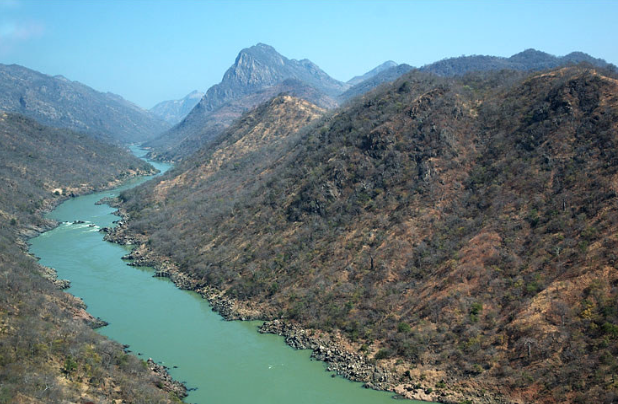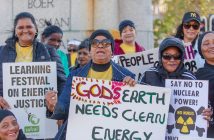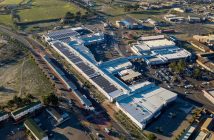- The proposed new hydro dam at Mphanda Nkuwa in Mozambique could start generating electricity in 2030.
- This is according to Deputy Justice Minister Filimao Suaze who was speaking after the weekly meeting of the Council of Ministerse earlier this week.
- The project will be constructed on the Zambezi river around 60 kilometres downstream from the existing dam at Cahora Bassa in the western Mozambican province of Tete.
Suaze said building the new dam will cost about USD 4 billion and will produce 1500 MW of power. Much of that electricity will be sent southwards on a 1,600 kilometre transmission line from Tete to Maputo. “It is expected that 2030 will see the effective take-off of this project”, declared Suaze. He expected construction to take six years.

Zambezi River – Tete, Mozambique
Zambezi River between the Cahora Bassa Dam and Tete. Image credit: Petri Viljoen
Originally planned several years ago, the Mphanda Nkuwa project was relaunched by the President Nyusi in 2018, and would be the largest dam in Mozambique after Cahora Bassa. The challenge remains finding an off-taker for the bulk of the power generated at Mphanda Nkuwa. The obvious buyer is the South African electricity company, Eskom, which already purchases the bulk of the power generated at Cahora Bassa. But so far Eskom has not committed to buying additional capacity from Mozambique.
In September 2019, the Mozambican government selected a consortium of four companies to provide technical assistance in the preparation of the Mphanda Nkuwa project. Read more
Financing is expected to be agreed in 2024 and construction to begin in the same year. The Mpanda-Nkuwa project development office is expected to launch a tender to identify a strategic investment partner for the project by December of this year.
In terms of shareholder structure, the Mpanda-Nkuwa project will have state participation of 30% to 35 %, via Electricity of Mozambique ( EDM) and Cahora Bassa Hydroelectric (HCB), with the remaining 65% in private hands.
Related news: Mphanda Nkuwa Hydro & Hydrogen – Could Mozambique Become a Hydrogen Hub?
Author: Bryan Groenendaal











